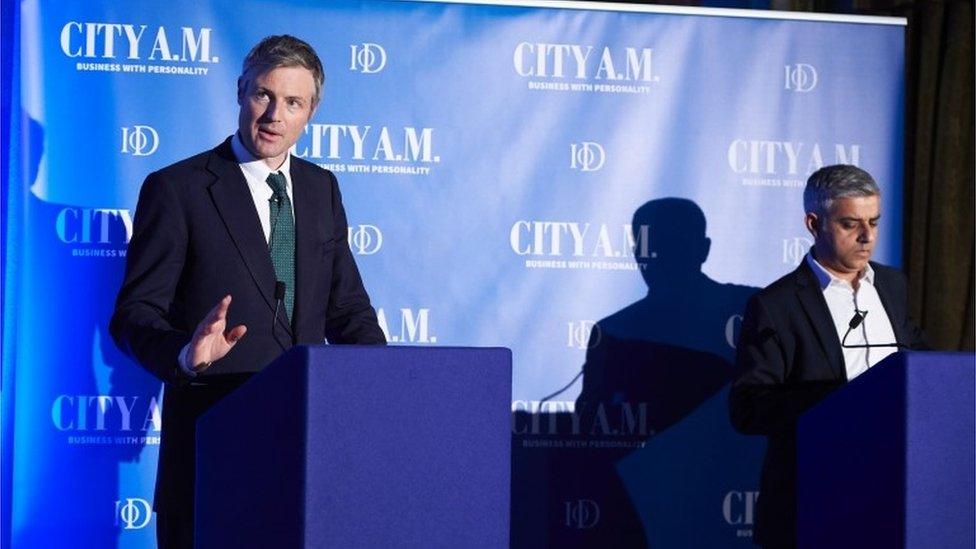London mayoral election: How Sadiq Khan won
- Published
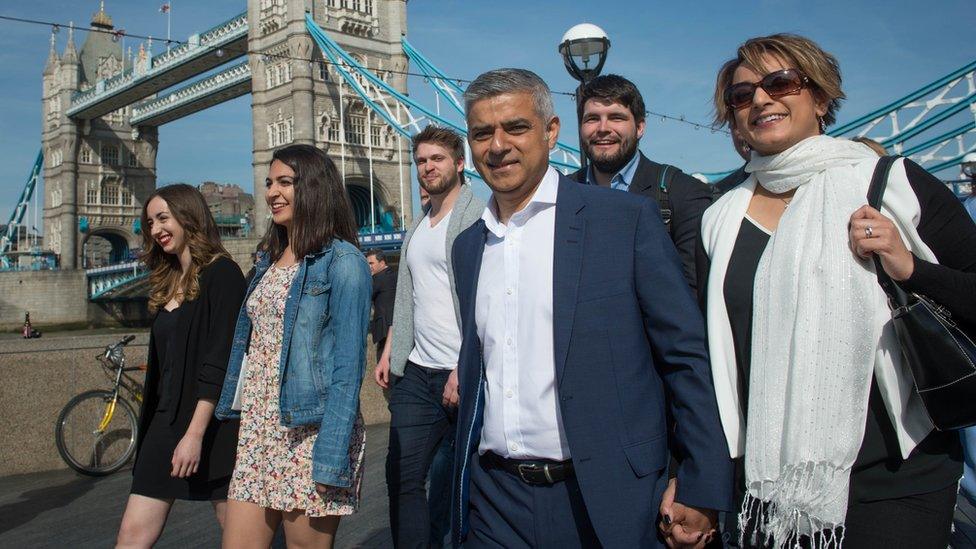
Sadiq Khan has taken London's City Hall back for Labour after eight years of Conservative control. How did he do it?
In physical stature - at 5ft 6ins tall - Sadiq Khan is more featherweight than heavyweight.
But London's new mayor - who still boxes occasionally at the club where two of his brothers coach - has shown he can dish it out and take it.
In recent weeks he endured a pummelling from his Conservative opponent and in the newspapers.
They alleged he did not do enough to confront the views of people he had either defended as a lawyer in the past, or had met as an MP in more recent times.
The Conservative strategy - widely noted for its negativity - provided "sharing a platform with extremists" as the euphemism of the campaign.
Labour claimed it was Islamophobic, and the Tories that this response was "playing the race card" to prevent legitimate questions being raised.
Despite the energies expended, Zac Goldsmith never found the knockout formula, but it confirmed Mr Khan was sure-footed with the media, and able to roll deftly with the punches.
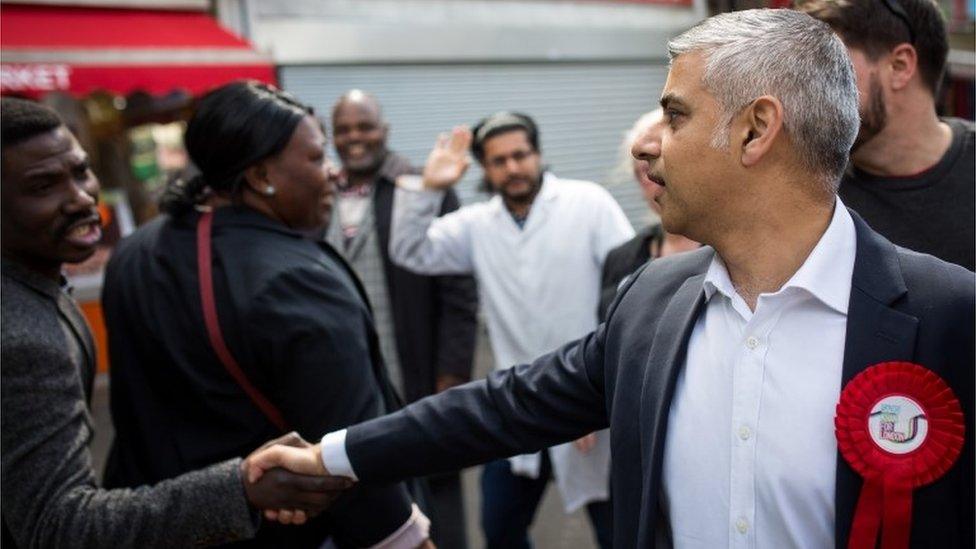
He conceded his legal career had meant acting on behalf of some "unsavoury" characters, and later that he "regretted giving the impression" he had not done enough to call out extremism.
He portrayed his Conservative opponent as fundamentally decent but led astray by malevolent forces. That may now seem charitable.
Smooth and unruffled
Some say a significant event in the early stages was a lunch with the Lobby, the accredited in-crowd of Westminster reporters, at which Mr Khan went down well.
In a speech that combined laddish references to football with serious themes of community and counter-terrorism, he pre-empted the later Tory attacks with talk about his teenage daughters and how he would be the moderate Muslim able to tackle extremism.
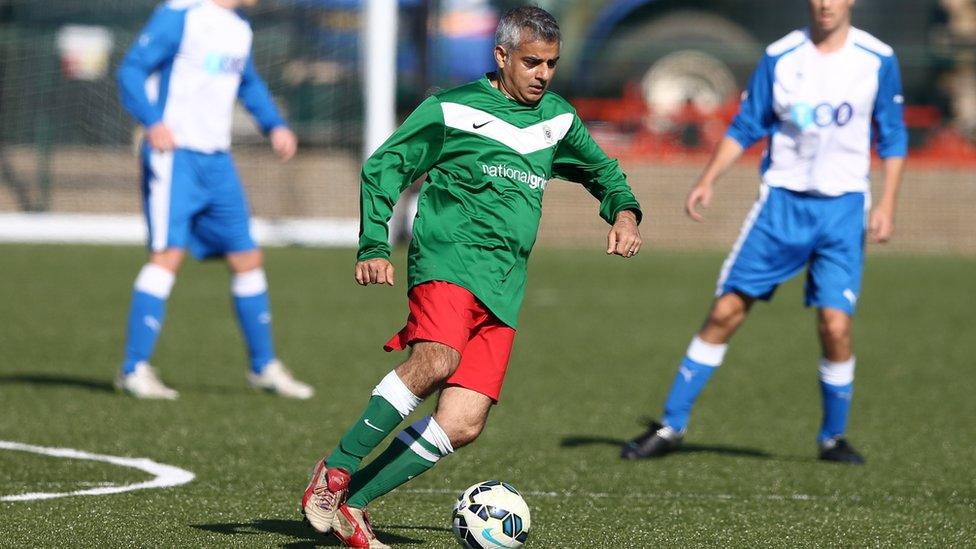
He has won people over with his laddish persona
If there was the occasional pugilistic flash from the former "firebrand" human rights lawyer, it may be that his opponent never posed a sufficiently serious risk during the campaign - certainly not according to the polls - for Labour to change tactics and engage in closer combat.
For the most part, Mr Khan was able to keep it ever-so-smooth and unruffled, if at times stilted and over-rehearsed.
In the hustings and debates of the past four months Mr Goldsmith had the edge on eloquence but he could not match his Labour opponent's self-belief, simplicity of messaging, and degree of preparation.
The Labour candidate had got started well before Christmas, while the conscientious Mr Goldsmith took time absorbing detail and honing policy.
And when difficulties arose, there was that legal training to help provide an escape route - facing down tricky questions with rote-like answers.
It looked for a while as if Mr Khan could be undone over his populist central pledge of a fares freeze, when it emerged awkwardly that there had been a failure to factor in the effect of future variations in inflation.
Transport for London officials started briefing that it would cost nearer £2bn, and the Tories smelled blood.
Mr Khan originally tried to win over interviewers with the suggestion that TfL's commissioner agreed with his figures but later adopted another formulation that he agreed so long as extra (as yet unidentified) savings could be found - quite different.
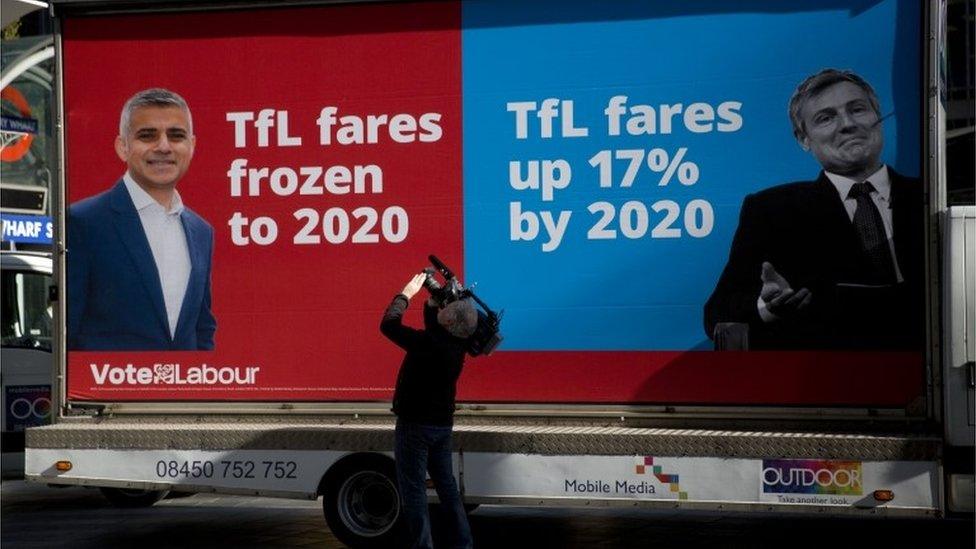
Mr Khan faced tough questions over his pledge to freeze fares
On the touchstone issue of housing, Mr Khan's promises on affordable homes, lower rents and "first dibs" for Londoners appear to have proved more palatable - even if probably less credible overall with experts - than Mr Goldsmith's proposals.
There is a difficulty ascribing victory to assembled policies, let alone one particular idea. It is hard to see that there was a signature dish here that defined him, though people clearly bought into his overall theme of helping ordinary Londoners.
One factor in the victory appears simply to be the resilient character of Labour tribalism in London, no doubt bolstered by anger at so-called Tory "smear" tactics.
After a good general election result in London last year, an activist base strengthened in the course of electing Jeremy Corbyn leader, and after two terms of Boris Johnson as mayor, Labour has reasserted its dominance in the capital.
Demographic trends suggest there will not be an end to that any time soon.
If it was the case that Mr Khan's team appeared to have thought of everything, there was a danger at times of it all feeling rather formulaic.
Independent stance
Some say the new mayor does not convince in terms of warmth and authenticity.
But the impression of independence was carefully maintained - not just from Mr Corbyn, with whom he was rarely seen, but from senior Labour figures in general.
Sadiq Khan and Jeremy Corbyn together in a rare appearance on the campaign trail
In the end the key narrative - that of the state-school educated son of a bus driver, brought up on a council estate, wanting so badly to lead the city that had given him so much - has proved compelling.
A year ago, Mr Khan was barely in the frame. Baroness Jowell was the candidate Tories claimed they feared. Now he has the third biggest personal mandate in European politics.
A profile in the Financial Times recently described the prospect of a Khan victory as both remarkable and unremarkable at the same time.
He becomes one of the first Muslim mayors in Europe at a time when European capitals have been tested by crises of terrorism and the plight of refugees.
He takes office after a campaign marred by religious and racial tension which may presage problems ahead but could also represent a genuine opportunity.
Mr Khan's victory, then, can be seen as symbolic victory at several levels.
- Published7 May 2016
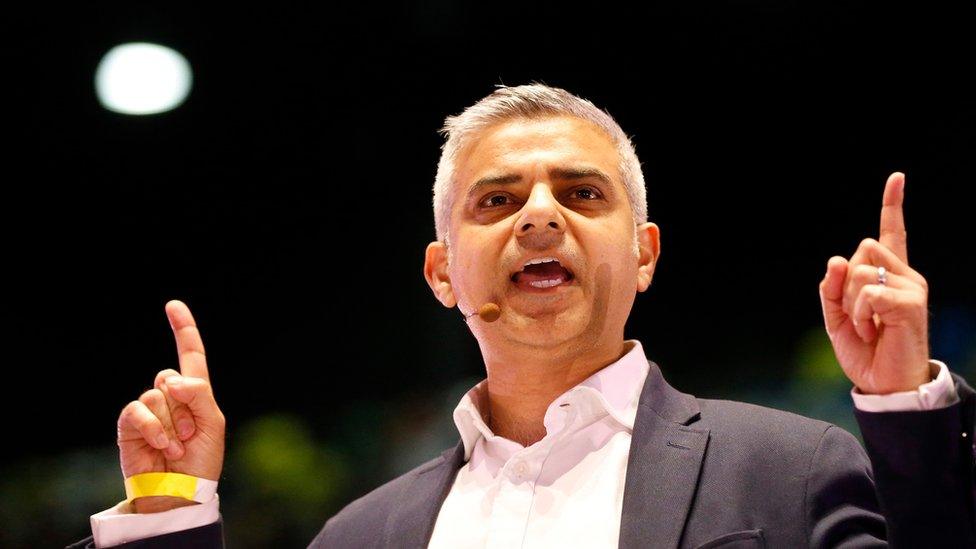
- Published6 May 2016
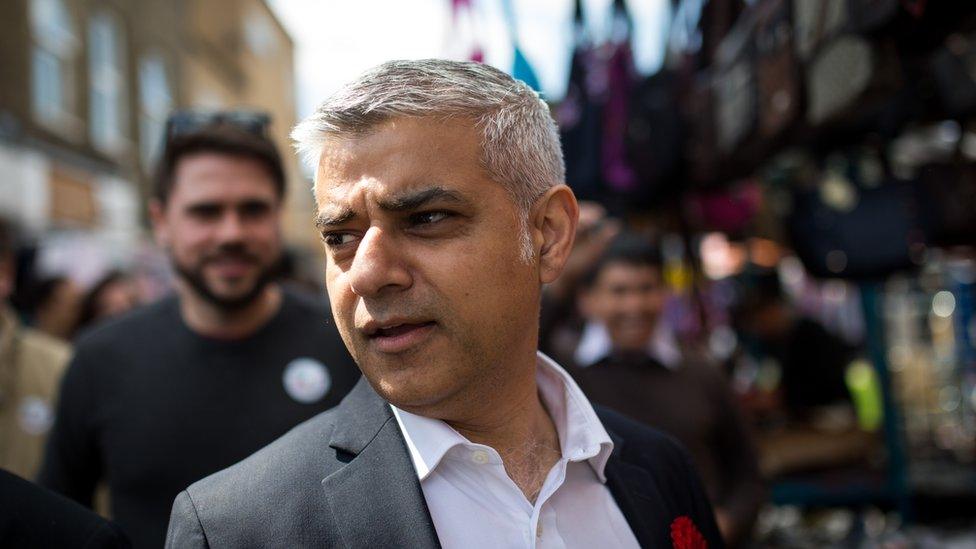
- Published6 May 2016
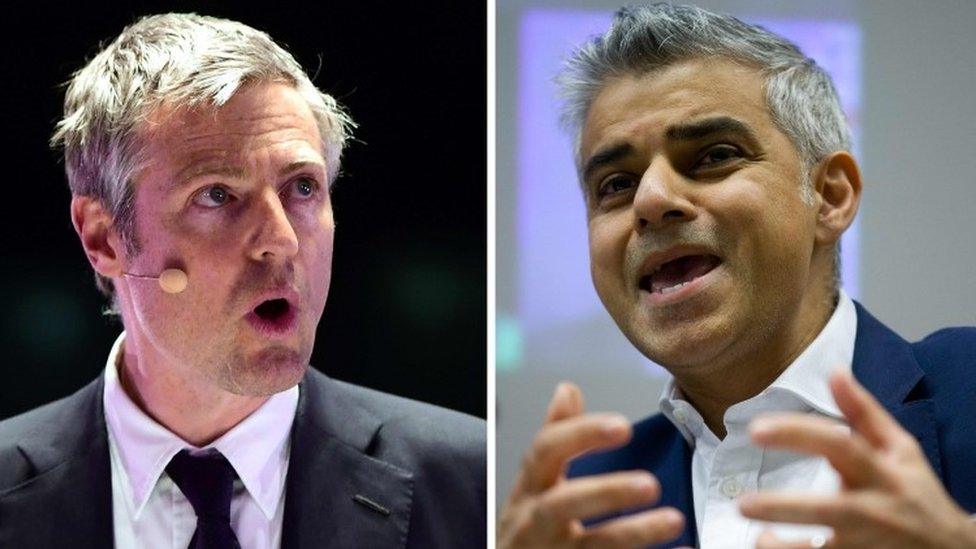
- Published15 April 2016
